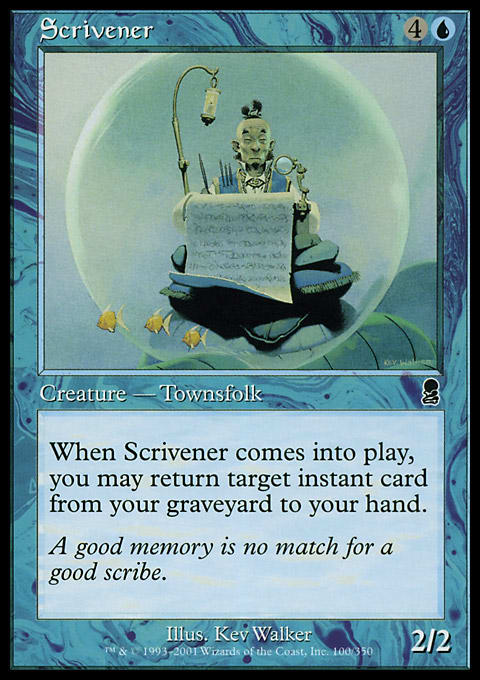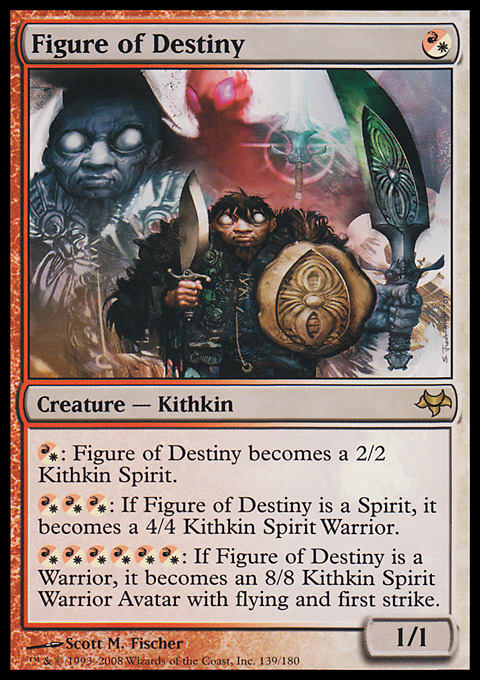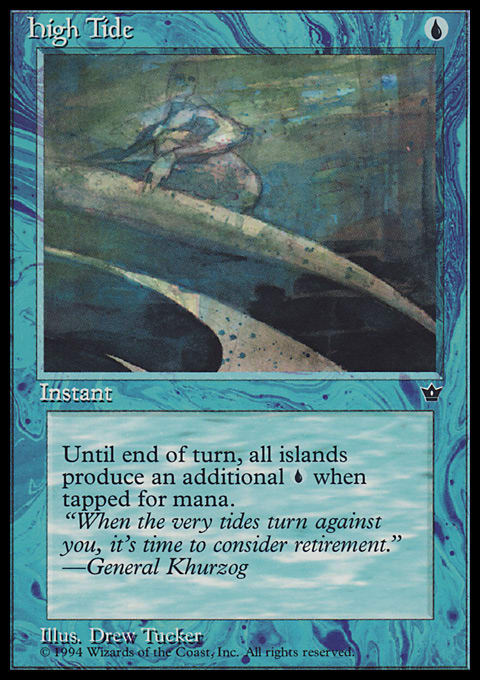One of the things I hear infrequently is, “How'd you become a Magic writer? I think I'd like to do that.” I honestly hate hearing this question—and for a few reasons. The answer is a long one, and when someone says he or she wants to be a Magic writer, nine times out of ten, the person just wants the notoriety of being a Magic writer and has no real passion for writing or relating to people in any medium.
Every Magic writer's path is different, and they're often complicated. To illustrate this, here's my own road to Magic writing.
When I first started playing, my local store started a message board to sort of nurture the small community we had. Putting up the site didn’t come at much cost to them; one of the store’s employees was an experienced webmaster. I started posting lengthy tournament reports in the vein of Jamie Wakefield, but with way more cursing. I also wrote a lot about going to Syracuse on the weekends and doing really well; being from Cortland, we all had a bit of a complex about the Syracuse players (I now reside in Syracuse, so life comes full circle, I guess), so the write-ups about beating a lot of those players always received a lot of attention.
Eventually, I went off to college, and my interest in Magic experienced a sharp decline. I played in a couple Pro Tour Qualifiers, but what really put me back into Magic was playing Grand Prix: Washington D.C. in 2009. It was then when Ted Knutson announced StarCityGames's Writer Search. At that point, as an undergraduate in Creative Writing, I figured entering the contest, albeit on a whim, would make a lot of sense.
Fast-forward a few months—I didn't win the contest. I made the top eight, but only the top four cashed, so, y'know, standard rough beats, and so on. Fortunately, Knutson and Evan Erwin both offered me contracts—Evan originally wanted me to help write copy for the Magic Show; the results of that short-lived experiment can be found here—and before I knew it, Ted had hopped off the site altogether, and I was offered a contract by Steve Sadin instead. Fast-forward a few more months of me bad-mouthing SCG Live coverage and everything else on Twitter, and I submitted an article containing a lot of in-jokes and jabs at other players, and so Sadin rightfully shit-canned me.
A few months later, I wrote this and submitted it to both Ted Knutson and SCG. SCG passed on it, so Ted published it independently. That article received the attention of then-editor of Gathering Magic, Trick Jarrett, who contacted me and asked me if I'd like to do more of that sort of article: analyzing player culture, as opposed to just Magic strategy. I jumped at the opportunity; I had been admonished during SCG's writer search for not bringing enough strategy content to my submissions. It wasn't what I was interested in. Trick seemed a lot more willing to explore different kinds of Magic writing, so I enthusiastically accepted his offer. Since then, Gathering Magic has changed content managers, but the transition's been seamless, both as a writer and a fan of the site.
I'm not the only writer with a convoluted path to his or her writing destination. Adam Barnello started as a moderator on the Eternal-based message board MTGtheSource and wrote for SCG for a spell. When he was let go, ChannelFireball picked him up, and he's still writing for them years later. The most common thread between Magic writers that I've found is that they had a passion for the medium, so much so that they were willing to do it for free. Even Mike Flores and Brian Kibler had humble beginnings, posting their tournament reports Notepad-style on the now-defunct TheDojo. The common thread here is that everyone was passionate enough to do it for free.
If you’re not writing any content now, why do you want to start? It's an important question, because if you really wanted to write about Magic that badly, you'd have done it already. Take Jesse Mason. His ascent into the world of paid authordom is pretty easy to track. He was very active on Twitter and wrote excellent pieces on his blog (lotsa cursing/libel in there, just a heads up). Eventually, he received the attention of Trick with this stellar tournament report, and he became a paid writer that way. Sure, for every Jesse Mason, there're ten guys who were commissioned a tournament report by someone solely on the merit that they made Top 8 in a Grand Prix. That's a real easy way to get started as Magic writer, and it's the one I recommend the most.
There is no easy way to become a Magic writer because there's no given way to be successful. If you're not enthusiastic about what you're doing, it will one-hundred-percent show in your writing when you drag yourself to the keyboard to pound out twelve hundred words about some PTQ you Top 8'd. If you want to be a Magic writer, you have to want it.
If you can't be bothered to just go out and win a Grand Prix, all I can really recommend is that you start a blog and be active on Twitter. There are countless hashtags commonly used by Magic players, #mtg being the chief among them. You'll be able to find a lot of fellow Magicians on Twitter, many of whom are trying to be big-time as well. If you're one of those who dislikes/distrusts social media and enjoys a false sense of superiority because you don't have a Twitter account, good luck at your next Grand Prix.
A rising tide lifts all boats, and in regard to Magic, the tide is really coming up right now. Thanks to a ton of different variables—Return to Ravnica, Duels of the Planeswalkers, and the prominence of streaming come to mind—there are new Magic websites cropping up all the time. And they need content! So what if they're not SCG or CFB? These people are (ostensibly) like you: They're super-enthusiastic about Magic, and they have a fresh vision of what a Magic content site should look like. It's important to remember that all cream floats to the top. If you're doing noteworthy work, people will take notice. The Magic community is growing by leaps and bound all the time, but it's still very small, and frankly, it's lacking for decent work. A memorable article will be noticed by the community at large, no matter what website it's hosted by. This is important to remember when and if you become discouraged about your amount of exposure. Whatever website you're on is not what's holding you back. Shifting the blame is not a productive use of your time. Write better.
A Short Recap
- Become involved in Twitter. Interact with anyone and everyone you can. Remember: You’re not too big-time for anyone. We’re all in this together.
- Start a blog and build your body of work. This is an excellent way to build up a résumé and practice writing. Impose deadlines on yourself. Give yourself a per-week words quota if you have to. Writing requires practice. Patrick Chapin didn't wake up one day with the ability to write articles about tournaments that occurred the day before the article was published. Always strive to be better.
- Abandon your preconceived notions about smaller websites. That mentality is for scrubs—I promise. Helping someone passionate build something great from the ground up will be a thousand times more rewarding than being another forgettable face on SCG’s ever-rotating roster.
If all that seems like a lot of work with no upside, you don't really want to be writing about Magic in the first place. But take it from me: The work is totally rewarding, and if you're willing to travel to a couple GPs every year, you get to meet a bunch of awesome people. Good luck with your blog, and I hope to see you at whatever Grand Prix comes next (hopefully you'll be in a Gathering Magic tee too!)
Jon Corpora
Pronounced Ca-pora


























